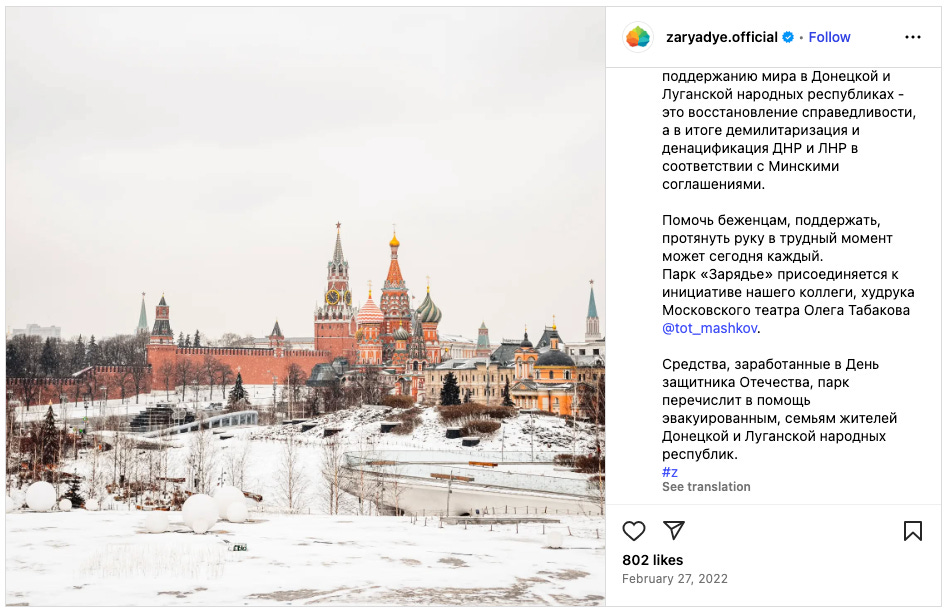Can We Please Stop Pretending that Music Is Going to Lift Us Above Anything, Let Alone the Current Global Political Landscape?
Or, why the hell is Lawrence Brownlee singing in Moscow?
First things first: In the real world, where music is not free from politics, John Shin — violinist and former concertmaster of the Utah Philharmonia — has been detained by ICE. John has spent most of his life in the United States, is married to a US citizen, and has two children.
His wife is organizing a GoFundMe for the legal fees to help his case. If you know John personally or have worked with him, you can also write a letter on his behalf. (Details for how to write those letters and where to send them can be found here.)
If you study the busts on the exterior of Paris’s Opéra Garnier, you’ll spot one for 18th-century composer André Danican Philidor. Despite his contributions to the genre in his day, however, to call Philidor a composer is a bit of a misnomer. His legacy today reverberates more strongly in the world of chess. His Analyse du jeu des Échecs is still considered a gold standard manual to the game.
With his Analysis, Philidor became one of the first experts on the game to challenge the notion that pawns are without agency; chattel to be used as the stronger pieces vie for checkmate. Famously, he refers to them as “the soul of chess.” When played correctly, “they alone determine the attack and the defense, and the winning or losing of the game depends entirely on their good or bad arrangement.”
I was reminded of Philidor’s maxim when reading about tenor Lawrence Brownlee a few days ago. Brownlee is described in his own official bio as “a leading figure in opera, both as a singer who has graced the world's leading stages, and as a voice for activism and diversity in the industry.” And, amid ongoing bombardments of Ukraine and obfuscated peace negotiations after nearly 1,300 days of war, he will sing next month in Moscow. The concert is a season-opener for the Moscow State Symphonic Orchestra, which will take place at the Kremlin-adjacent Zaryadye Concert Hall.
Kremlin-adjacent, both physically and spiritually: Zaryadye is a federally-funded cultural institution, as is the Moscow State Symphony. Days after Russia’s full-scale invasion of Ukraine in February, 2022, the park that serves as an umbrella institution for the concert hall posted to its Instagram (translated from Russian):
“Peace, freedom, a normal life. Today, our neighbors, our friends, everyone who has been forced to leave their homes and family and seek temporary asylum are dreaming of and waiting for support.
“Today Russia came to the aid of those who have spent years suffering from war and bombings. The decision taken by the President of Russia Vladimir Putin to carry out peacekeeping functions in the Donetsk and Luhansk People's Republics is the restoration of justice, and as a result the demilitarization and denazification of the DPR and the LPR in accordance with the Minsk Agreements.
“Everyone today can help support refugees and lend a hand in this difficult moment. Zaryadye joins the fundraising initiative of our colleagues at Moscow’s Oleg Tabakov Theatre School. Funds earned on Defender of the Fatherland Day will be given to evacuees of and residents still in the Donetsk and Luhansk People’s Republics. #z”
This was in line with several talking points used by the Kremlin to justify the full-scale invasion, right down to the seemingly innocuous #z.

“I am not a pawn, and will never become one,” Brownlee said in a statement to Opera Wire when asked about his decision to perform in a concert indelibly linked to Putin’s cultural ministry. Earlier, he said:
“As an artist, I believe that my art is the most powerful way for me to create positive change in the world. My decision to sing in Russia is not in any way an endorsement of the policies of their current government, just as my decision to continue to sing in the U.S. is not an endorsement of our current government. For me, the greatest power of music is that it can lift us above the divisive rhetoric of present-day politics, and remind us of what truly unifies us in our shared human experience.”
The issue is that, as anthropologist and interdisciplinary social scientist Krysta Ryzewski writes, “we’re all pawns.” The only non-pawn in chess is the king. Everything else can (and often is) lost. “Playing chess, you transcend your existence as a pawn and momentarily get to be king.”
Putin is acutely aware of this. Culture in general — and classical music in particular — have been part of his arsenal in fighting for Russian cultural and political supremacy. There is no opting out, especially if you are going into Russia to sing on a government-controlled stage. Brownlee’s suggestion that he can do so is either woefully naïve (as of this writing, at least, the only cultural institution in the United States aligning with the policies of the current government is the Kennedy Center, and even that is a new development) or deeply cynical.
Brownlee isn’t the only non-Russian singer to travel to Russia since the full-scale invasion. Last summer, Vittorio Grigolo and Pumeza Matshikiza also appeared at a gala concert in St. Petersburg (Grigolo also sang at Zaryadye). Ambrogio Maestri made his Bolshoi debut last March and went to St. Petersburg earlier this summer to sing with the Mariinsky’s White Nights Festival. Ramón Vargas, Marcelo Álvarez, and Ferrucio Furlanetto have also sung in the country in recent years.
You can accuse me of holding Brownlee to a higher standard than any of these other singers by writing about him and not them. As far as I can tell, however, he is the only singer to have made an official (and detailed) statement about this decision, as well as the only one whose career has also been anchored in the branding of activism and justice.
Opera has long lived in the fantasy of art being separate from politics, and when one of its more outspoken voices for justice decides to lend that voice to a regime that weaponizes art as soft power, that fantasy collapses into farce.
Meanwhile, other singers with far more at stake have cut ties and given up significant work in the last two-and-a-half years. The MSSO’s current music director, Ivan Rudin, has this title because the orchestra’s previous director, Pavel Kogan, fled the country in the wake of the full-scale invasion. Other musicians who have remained in the country have faced arrests and even death for taking actions as miniscule as performing the works of Ukrainian composers. As Brownlee prepares to head to Moscow, Anna Netrebko’s employability has become once again a topic of debate in the United Kingdom as she prepares to sing Tosca at the Royal Ballet and Opera (without, it’s worth adding, having sung a note in Russia since the full-scale invasion).
Ironically, the concert is slated to conclude with one of Brownlee’s signature arias, the showstopping “Ah mes amis!” from Donizetti’s The Daughter of the Regiment, which takes place in the Tyrolean Alps, around the time that Napoleon asserted control over Switzerland.1 Before this scene, Tonio, a young villager, tells Marie — the titular daughter, who has grown up traveling with a French squadron — that he would gladly give up the land of his childhood and the friends he holds dear and join her regiment.
He makes good on that promise, and “Ah mes amis” shows him trading in his childhood friends for a new set of amis in the Napoleonic regiment. “What happiness, my friends,” he sings, “I will march under your flag.” I’m sure Tonio was convinced that he was above politics, too.
Brownlee may think that this one concert in Moscow isn’t significant; that it’s not an endorsement of the politics surrounding it. He may truly believe that art exists in a vacuum, and that music can “lift us above the divisive rhetoric of present-day politics.” (I, for that matter, can believe that I am Marie of Roumania.) But his choices are not neutral. Indeed, they are inherently political — whether he wants them to be or not. It’s hard to not read this decision as being one rooted more in transaction than transcendence.
To quote another landmark work about chess, “I hope he pays you what you’re worth.”
Homepage image: "A Pawn In Your Game" (detail) by Evelyn Morgan
The concert will feature another work touching on Swiss sovereignty in the face of foreign invasions: Rossini’s William Tell.



“Tonio, a young villager, tells Marie — the titular daughter, who has grown up traveling with a French squadron — that he would gladly give up the land of his childhood and the friends he holds dear and join her regiment.”
I see Russia has the same issues with the writers’ room delivering scripts that are way too on the nose that we have here in America.
Olivia, I have been mulling this on and off for the last 9 days and have repeatedly stopped myself from firing off an impulsive response. What I wanted to say was, "No, we cannot stop pretending that music, etc...because in fact we do not have to pretend anything. Music absolutely CAN lift us above many if arguably anot all things, and moreover, the fact that Mr. Brownlee's ghastly and appalling misunderstanding of that idea led him to think his participation in a concert of this sort would do so should not therefore lead us to the conclusion that music is powerless to lift us above even some of the worst things imaginable, or even that his participation might not have done so had he made different choices.
Suppose he had decided to announce just before singing that he was dedicating his performance to the heroic Ukrainian people in their struggle against oppression? He might have been booed off the stage, or physically yanked off the stage, or his performance might have been met with a mixture of hisses and cheers, or with complete silence. But such an act would, in my view, have been a profound example of music - even had he not been able then to sing a single note - lifting us - at least those of us who believe in art as moral action - above the current geopolitical situation and speaking truth to power. Just sayin'.....
I may be a complete fool, but such are my thoughts for what they are worth.